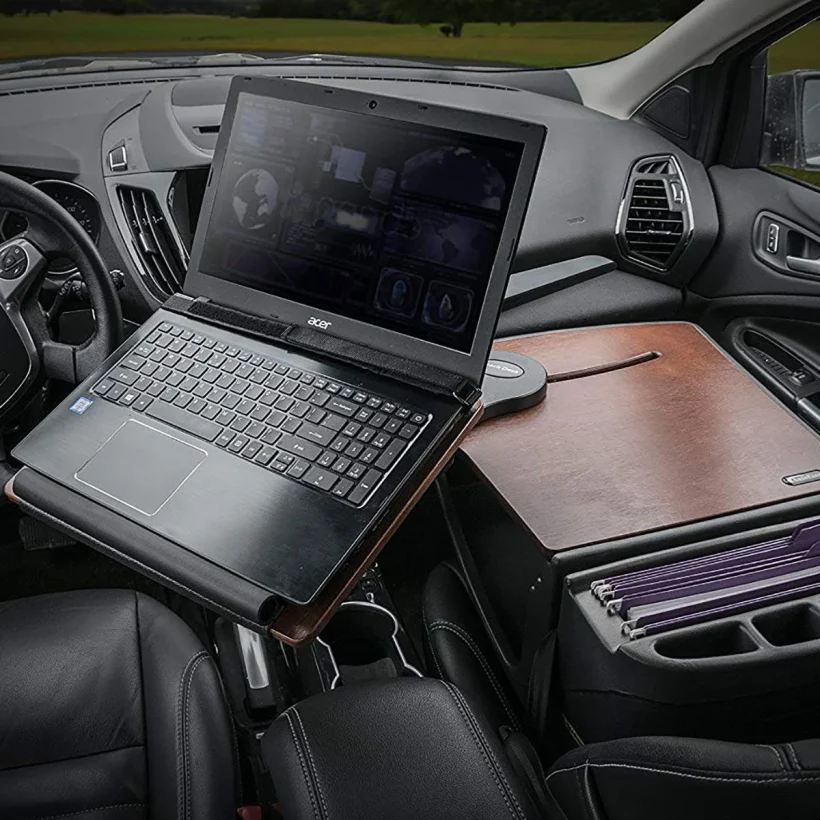Truck drivers are a key element of the supply chain since they deliver food, cars, and other things throughout the country. The Bureau of Labor Statistics (BLS) states that in 2024 over 2.5 million heavy and tractor-trailer truck drivers in the United States earned an average income of $49,820.
If you’re looking for CDLjobs, you need to know a few key facts regarding the industry. Trucking professionals are usually compensated by the mile. Moreover, you can start working if you are 21 and have a high school diploma or equivalent plus a commercial driver’s license (CDL). But first, you need to consider some factors and decide if you are ready to accept them or not.
In this article, we’ll explain the eight most important things you should know before starting a career in trucking. So, stick till the end to learn more:
1. This Career Comes With a Lot of Stress

Working in the transportation industry entails a certain amount of stress. A profession as a truck driver, on the other hand, is demanding. You’re stressed when you’re stopped in traffic or looking for a specific area downtown and can’t find it.
When trying to squeeze into a tight spot, you may suddenly find no room for a tractor-trailer. This can cause a lot of strain on your nerves.
In addition, you must always arrive on time and never be late since the customer does not care. He simply wants you to get to the pier on time.
There’s also the worry of being away from home and missing your loved ones. Driving professionally for a living is stressful. You must learn how to manage stress effectively since it is one of the first things you should do.
2. Relationships Will Suffer

On average, as a trucker, you’ll be more away from home than at home. This separation can put your family under a lot of stress. Besides caring for the children, paying the bills, executing all jobs, and mowing the lawn, they must manage and administer the household.
Also, they have to take care of more things while you’re away. Moral and emotional support are in short supply. This absence isn’t something that can be fixed over a phone call.
3. Growth Opportunities
The trucking business has a lot of room for expansion. You can either begin or end your career as a professional driver, or if you want to advance in your job, you can do so.
It depends on you. There are options to become an in-house driver trainer or work your way up to transportation manager if you drive for DTI.
You can choose to work with big companies on more extended contracts. That way, you will get a better margin. After some time, you can even start your own trucking business.
4. Your Vehicle Will Be Just Like Your Office

Even though you won’t be doing a 9 to 5 job while sitting in an office cubicle, you’ll face some of the exact workplace expectations and limitations as typical office workers.
Set performance objectives with your bosses and keep them informed of your progress. Remember that your client is trusting you with their cargo. But earning that trust entirely where they know you’ll fulfill their task can take time.
5. The First Year is the Most Difficult
Without question, your first year as a truck driver will be the most difficult. There are still many things regarding the work that you don’t know about.
You’ll be making numerous adjustments, including acclimating to the job and becoming acquainted with the truck you drive. You must use your new driving talents and adjust to the lifestyle.
But you should have a behind-the-wheel experience as it will relax you and help reduce stress so you can enjoy your job more.
6. Learn To Communicate Effectively

A trucking career is not something that you can take lightly. Effective communication is the key to building your clients’ trust and managing people.
You won’t be all by yourself on the road. So, you must learn to deal with people at various levels. Coping with a dispatcher, mechanic, shipper, or receiver effectively means time won’t be wasted.
You often won’t get paid for waiting on a dock, so you would want to reduce downtime by leaving quickly.
If you are not experienced in driving, chances are you’ll get a driver trainer. Sometimes they can be good, and sometimes they are not.
So, you must adjust and learn to spend your day with them. Be courteous regardless of whether you like them or not.
7. You won’t become richer overnight
One thing to note is that you won’t become rich overnight in a trucking job. You may think that the longer the hours you’ll put into your career, the more you’ll earn. But it doesn’t work like that. Often you’ll only make a bare minimum regardless of the long hours.
So, you must accept that fact early on in your trucking career. The operating costs on the road have skyrocketed from a couple of years ago. There are also the breakfast, meals, repair, and maintenance charges.
8. Consider Changing Your Position
You don’t want to grow stagnant in your trucking career. But you may often find yourself in a position where you won’t be paid for your waiting time. Your time is worth the money.
If you think a company is not compensating you fairly for your time and effort on the road, it’s time to switch to a better company. Before starting your career, you have to promise yourself that you won’t let your abilities go in vain.
Conclusion
A career in trucking is a good job as long as you can find the right balance between your work and relationships. It also depends on what kind of quality of life you are looking for. Our advice to you is to learn to manage the issues involved with trucking and consider the things we mentioned before starting a trucking career. Our article is not meant to scare you but to guide you with the correct information to make the right choice.

